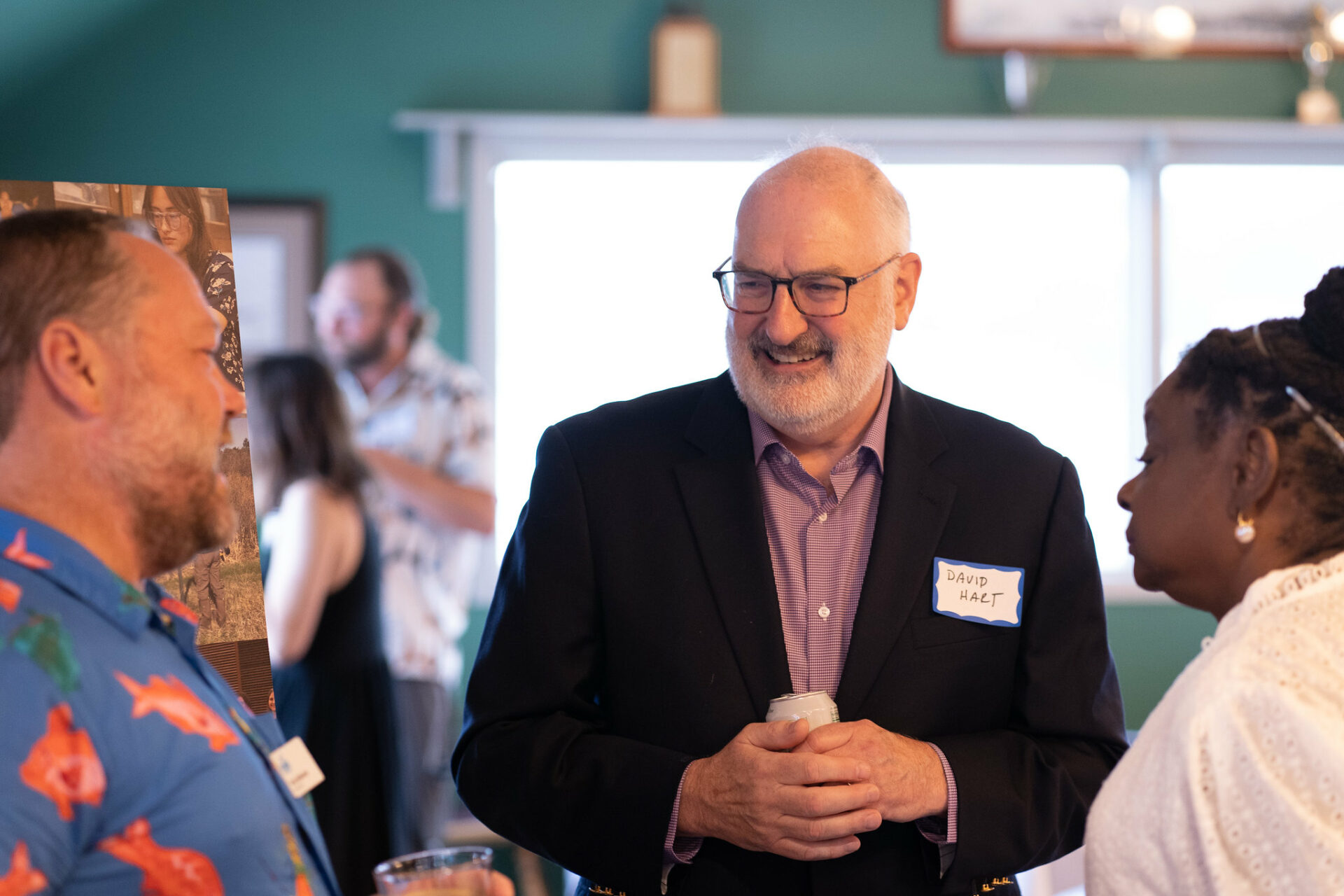First, the bad news: Wisconsin Sea Grant’s Social Science Outreach Specialist, Jane Harrison, is leaving the program at the end of July.
Now, the good news: She’s staying in the Sea Grant family. Harrison begins a position with North Carolina Sea Grant in August.
Harrison was Wisconsin Sea Grant’s first social scientist, and her interest in the balance between economic development and the sustainable use of natural resources brought her to projects that quantified the value of improved natural resources. In Milwaukee County, Harrison found that residents are willing to pay $6.7 million annually to avoid beach closures caused by poor water quality. In the Sheboygan River area, she conducted multiple studies that revealed the economic impacts of watershed restoration.
“It’s important for policy makers to know how much Wisconsin residents value their natural resources,” Harrison said. “And coastal residents should understand how ecosystem change affects economic sectors like the fishing industry, and influences property values and recreation decisions.”
Harrison also coordinated a team of social scientists to evaluate the National Weather Service Central Region’s new severe storm communication tool. The tool consists of specific impact-based warnings, such as “tornadic winds could throw automobiles into the air,” in order to disseminate a clear and consistent message to the public. However, Harrison found that different regions of the country viewed the warnings differently—North Dakotans, for example, don’t share the concern that Kansans have about tornadoes.
This interest in seeking out different perspectives has been a major factor in her success. When she started with Sea Grant three years ago, she said, “One of the key questions I think social science can help frame is ‘Where are people coming from?’ It’s always in the back of my mind—how can we approach people where they are?”
When Kathy Kline, Sea Grant education outreach specialist, wanted to develop a campaign to encourage Wisconsin residents to purchase more locally produced fish, she turned to Harrison to find out what those local consumers already knew, and what stood between them and putting local fish on their plates.
“Jane’s expertise was exactly what we needed to launch our Eat Wisconsin Fish campaign,” said Kline. “She carefully analyzed our survey results so that we could understand how best to craft our message, and then she used focus groups to really hone the outreach materials we developed to target our audience.”
Harrison’s ability to work with people also came into play as she built connections with stakeholders, researchers and students. She worked with groups as diverse as beach cleanup volunteers, anglers, Milwaukee County Parks and the World Environmental Economics Congress—just to name a few.
David Hart, Sea Grant assistant director for extension, praised Harrison’s ability to work with many different groups and her unique perspective as a social scientist, “It’s been a great experience working with Jane. She has been an enormous asset both to Wisconsin Sea Grant and the Milwaukee area.”
For her part, Harrison is sad to be leaving Wisconsin, but looking forward to a considerably warmer winter and new saltwater challenges. “I feel fortunate to have had this opportunity to work with WISG and to be able to continue being part of the Sea Grant family,” Harrison said.





